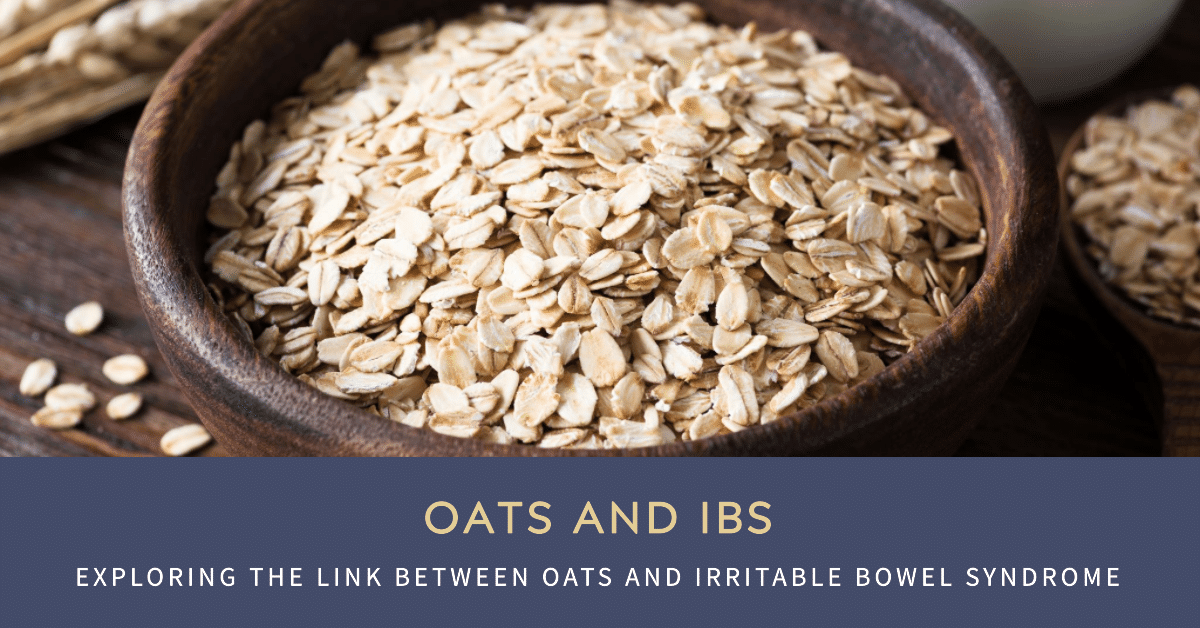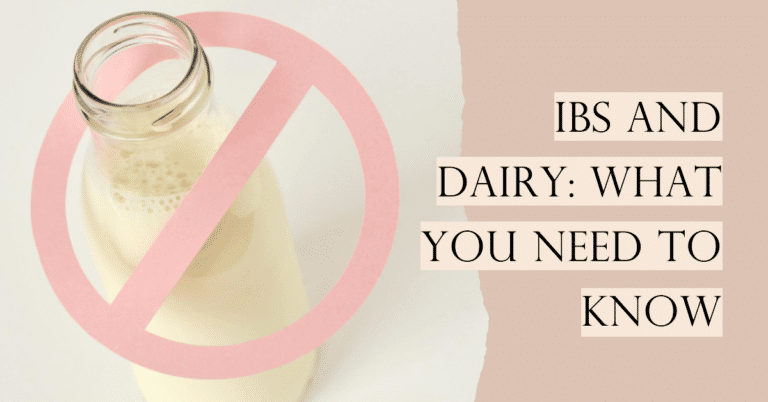Oats and IBS: The Lowdown on Oatmeal for Irritable Bowel Syndrome

Are you grappling with IBS and wondering about the impact of oats in your diet?
Here’s the scoop in a nutshell: Oats, rich in fiber and nutrients, can help manage IBS symptoms for many, while some may experience discomfort.
That’s not the end of the story though – continue reading to discover more about the link between oats and IBS.
Key Takeaways
- Oats are naturally low FODMAP and gluten-free, making them a good choice for many with IBS.
- The fiber in oats can help relieve constipation but may worsen diarrhea for some.
- Cooked oats tend to be better tolerated than raw oats for people with IBS.
- Start with small servings of oatmeal and monitor symptoms to see if oats aggravate your IBS.
Do Oats Trigger IBS Symptoms?
Oatmeal’s impact on Irritable Bowel Syndrome (IBS) varies between individuals.
Though many people with IBS tolerate oats due to their low FODMAPs content, the high fiber in oats can cause issues.
It might alleviate constipation but worsen diarrhea and result in gas or bloating. Avenin, a protein in oats, may also cause intolerance in some, including those with celiac disease.
To test your body’s response, gradually incorporate oatmeal into your diet.
Remember, while oats are naturally gluten-free, contamination during processing can occur.
It’s because of this that individuals with celiac disease or gluten sensitivity should choose ‘gluten-free’ labeled oats.
Are Oats Good for IBS Constipation?
Oats can be a great food for relieving constipation in IBS.
Oats contain two types of fiber:
- Soluble fiber – dissolves in water to form a gel-like substance that softens stool and makes it easier to pass.
- Insoluble fiber – adds bulk and draws water into the stool to relieve constipation.
The soluble fiber in oats, called beta-glucan, is particularly beneficial for constipation. It helps give stools more bulk and moisture, making them easier to pass through the intestines.
Studies show that eating oat bran or oatmeal improves constipation, increases bowel movement frequency, and softens stool consistency. Just 1/2 cup of cooked oatmeal provides 2 grams of fiber.
So if you struggle with IBS and constipation, oatmeal and oat bran are smart choices to help get things moving. Start with a small serving and gradually increase the amount to give your body time to adjust.
Do Oats Make IBS Diarrhea Worse?
While oats can help constipation, they may worsen diarrhea for some people with IBS.
Oats are high in insoluble fiber, which can accelerate bowel transit time and loosen stools. The fiber content may also draw excess water into the intestines, causing runny stools.
Some people find raw oats more problematic than cooked oats for diarrhea. Raw oats contain more insoluble fiber, which isn’t broken down during cooking.
The insoluble fiber in raw oats may overstimulate the intestines, worsening diarrhea.
Additionally, oats contain resistant starch, which escapes digestion and feeds the good bacteria in your intestines. For some people, this may lead to excess gas production and loose stools.
If you have IBS-D, it’s best to start with small amounts of cooked oatmeal to see how your body handles the fiber content.
Avoid raw oats and oat bran at first and also make sure to monitor your symptoms to determine your tolerance.
Tips for Eating Oatmeal with IBS
Here are some tips for eating oatmeal and oat products with IBS:
- Start small – Gradually introduce oatmeal into your diet in small servings and work your way up to see how it impacts your symptoms.
- Choose cooked – Cooked oats tend to be better tolerated than raw oats for both constipation and diarrhea. Try old-fashioned rolled oats or steel-cut oats.
- Avoid raw – Raw oats like oat bran may be too harsh for the intestines. Cook oats to soften the fiber content.
- Read labels – Check for “gluten-free” labeling and avoid oat products processed alongside wheat. Look for certified gluten-free oats if you are highly sensitive.
- Use low FODMAP toppings – Top oatmeal with low FODMAP fruits like blueberries and low fat milk or yogurt. Avoid high FODMAP toppings like apples or milk alternatives made from soy, pea, or almond.
- Listen to your body – Monitor symptoms and adjust your oatmeal intake accordingly. Your tolerance may change over time.
Oats and IBS – Final Thoughts
Oats can be a good pick for those of us with IBS. They’re low in FODMAPs and don’t have any gluten. But, everyone’s different – what works for one might not work for another.
Oats can help if you’re constipated, but watch out if you’re more prone to diarrhea. Cooked oatmeal usually goes down easier.
So, start off slow and see how your body reacts. It’s all about finding the right balance.
I hope this provides a helpful overview of how oatmeal affects IBS!
Let me know if you have any other questions in the comments section below I’d I’ll be happy to help!
Disclaimer: This content is based on my personal experience as an individual diagnosed with celiac disease and IBS (Irritable Bowel Syndrome) who follows a strict gluten-free diet. This does not constitute medical advice. Please consult a medical professional, nutritionist, or qualified dietitian for personalized, professional advice.






